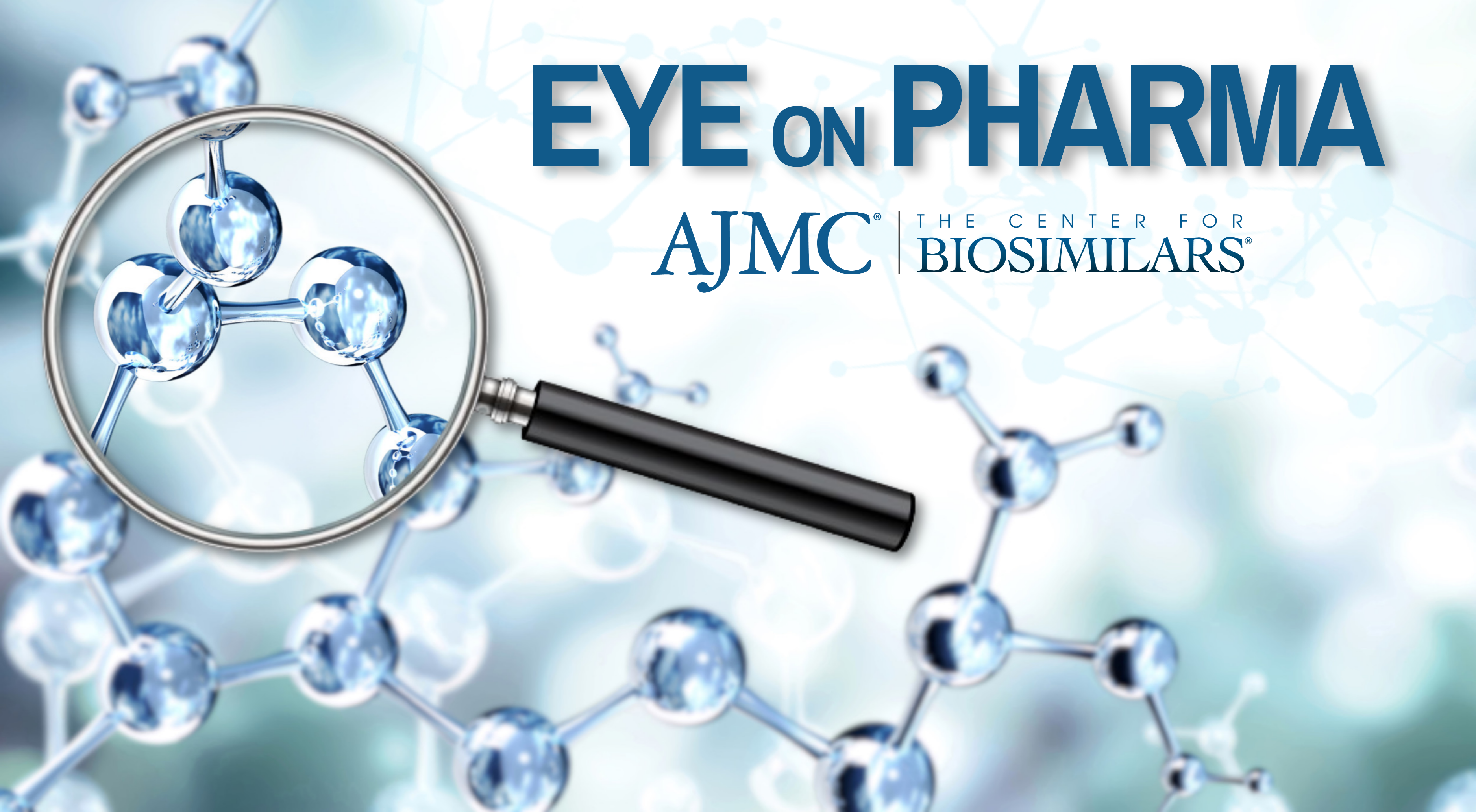- Bone Health
- Immunology
- Hematology
- Respiratory
- Dermatology
- Diabetes
- Gastroenterology
- Neurology
- Oncology
- Ophthalmology
- Rare Disease
- Rheumatology
FDA Reviews Golimumab Biosimilar, Samsung Biologics Hits Record Sales, Japan Approves Stelara Biosimilar
The FDA accepted applications for a golimumab biosimilar, while Samsung Biologics reported record sales, and a Japanese regulatory agency approved a Stelara biosimilar.
The FDA accepted applications for a golimumab biosimilar, while Samsung Biologics reported record sales, and a Japanese regulatory agency approved a Stelara biosimilar.

FDA Reviews Golimumab Biosimilar
The FDA accepted the biologics license applications (BLA) for AVT05, Alvotech’s and Teva Pharmaceuticals’ proposed biosimilar to golimumab (Simponi and Simponi Aria), which treats inflammatory conditions like rheumatoid arthritis.1
This is the first BLA for golimumab biosimilar to be accepted by the FDA. The FDA expects to complete the review by the fourth quarter of 2025.
Alvotech and Teva partnered in 2020 to commercialize Alvotech’s biosimilars. The partnership has grown to 9 total products, including AVT05.
Previously, 2 biosimilars developed through the partnership received FDA approval. Alvotech’s first approval for Simlandi, a biosimilar to Humira (adalimumab), came in February 2024.2 Simlandi is the 10th Humira biosimilar and launched in May 2024 as the first high-concentration, citrate-free interchangeable version and launched in May 2024.
Alvotech and Teva subsequently received FDA approval for Selarsdi, a Stelara (ustekinumab) biosimilar.3 Selarsdi is expected to launch in the US by February 2025.1
Samsung Biologics Hits Record Sales
Samsung Biologics made history as the first biotech company in the Republic of Korea to make $2.78 billion in annual sales.4
Overall, sales and profits increased by 23% and 19%, respectively. Samsung Bioepis, the biosimilar subsidiary of Samsung Biologics, reached ₩1.537 trillion ($1,064,765,744.52 USD) in sales and ₩435.4 billion ($301,646,861.60 USD) in profits.
Biosimilar products contributed to ₩517.4 billion ($358,456,789.60 USD) in sales increases across global markets and profits more than doubled to ₩230 billion ($159,344,920 USD) compared with the previous year. Samsung Biologics achieved its highest quarterly sales of ₩1.256 trillion ($870,161,824 USD) in the fourth quarter, representing a 17% increase year-over-year. Overall, operating profit decreased by 7% in the fourth quarter (₩325.7 billion or $225,646,262.80 USD).
Standalone operating profits declined 6% to ₩314.7 billion ($218,025,418.80 USD) due to investments in contract development and manufacturing enhancements. Stronger biosimilar sales boosted Samsung Bioepis’ fourth-quarter sales by 38% year-over-year (₩397.4 billion or $275,320,309.60 USD). However, high research and development costs decreased operating profit by 8% to ₩72.3 billion ($50,089,729.20 USD).
Samsung Biologics forecasts a 20% to 25% sales increase, projecting ₩5.57 trillion ($3,858,918,280 USD) in revenue. The company indicated it is in a stable financial position with its debt-to-income at 59% and a borrowing ratio of 12.3%. By the end of 2024, Samsung Biologics reported consolidated assets of ₩17.33 trillion ($12,006,293,320 USD), equity of ₩10.90 trillion ($7,551,563,600 USD), and liabilities of ₩6.43 trillion ($4,454,729,720 USD).
Japan Approves Stelara Biosimilar
The Pharmaceuticals and Medical Devices Agency (PMDA) of Japan approved a subcutaneous ustekinumab biosimilar referencing Stelara.5 Biocon Biologics, a leading global biosimilars company, developed and manufactured the ustekinumab biosimilar.
Biocon Biologics plans to commercialize and market the drug in Japan with its partner, Yoshindo Inc. The drug was designed and approved for patients with psoriasis vulgaris and psoriatic arthritis.
Biocon Biologics reached a licensing agreement with Janssen to commercialize ustekinumab in Japan following regulatory approval.
References
- Alvotech and Teva announce filing acceptance of US Biologics License Applications for AVT05, a proposed biosimilar to Simponi and Simponi Aria (golimumab). Press release. Alvotech. January 27, 2025. Accessed January 28, 2025. https://investors.alvotech.com/news-releases/news-release-details/alvotech-and-teva-announce-filing-acceptance-us-biologics
- Jeremias S. FDA approves 10th adalimumab biosimilar, Simlandi. The Center for Biosimilars®. February 24, 2024. Accessed January 30, 2025. https://www.centerforbiosimilars.com/view/fda-approves-tenth-adalimumab-biosimilar-simlandi
- Jeremias S. Alvotech’s Stelara biosimilar, Selarsdi, receives FDA approval. The Center for Biosimilars. April 16, 2024. Accessed January 29, 2025. https://www.centerforbiosimilars.com/view/alvotech-s-stelara-biosimilar-selarsdi-receives-fda-approval
- Hae-yeon K. Samsung Biologics hits W4.5tr sales milestone. The Korea Herald. January 22, 2025. Accessed January 28, 2025. https://www.koreaherald.com/article/10405085
- Japan health authority approves Biocon Biologics’ ustekinumab BS, biosimilar to J&J’s Stelara. Indian Pharma Post. January 7, 2025. Accessed January 29, 2025. https://www.indianpharmapost.com/news/japan-health-authority-approves-biocon-biologics-ustekinumab-bs-biosimilar-to-jjs-stelara-16633
Newsletter
Where clinical, regulatory, and economic perspectives converge—sign up for Center for Biosimilars® emails to get expert insights on emerging treatment paradigms, biosimilar policy, and real-world outcomes that shape patient care.
